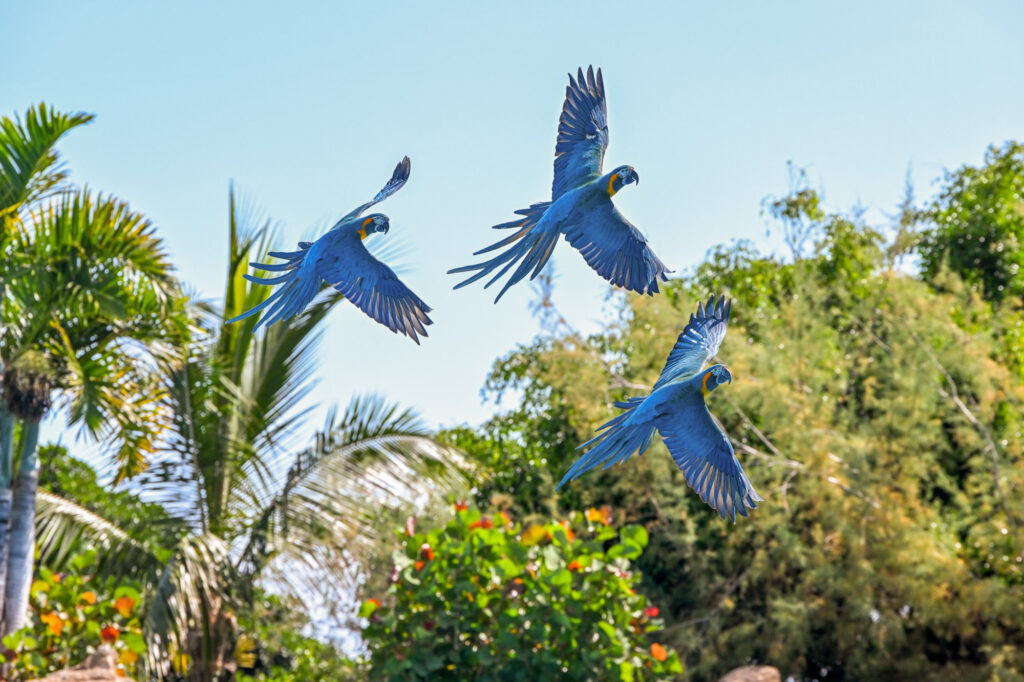
The next generation of conservationists needs to be inspired to step up to the plate.
Scientists believe the planet is in the midst of the sixth mass extinction. And unlike the previous five periods, this one is primarily driven by human activity. Why? Largely because our unsustainable land and water use is slowly destroying natural habitats.
Scientists estimate that species are now disappearing at a rate that is 1,000 to 10,000 times quicker than what would be unfolding if humanity were not a factor. More specifically, new research suggests that of the more than 150,000 species monitored by the International Union for Conservation of Nature, nearly half are experiencing shrinking populations.
It is not difficult to imagine why species around the world are facing a crisis.
From the destruction of natural habits in the name of development to industrial runoff in the name of production to deforestation in the name of agriculture, human actions are squeezing plants, animals and insects into a smaller and smaller space. Not only are these shrinking areas struggling to sustain current population sizes, but species are thrust into unnatural environments where they are pushing against thousands of years of evolution.
Fortunately, while humans have been the driving force of the problem, we can also become a part of the solution.
Recently announced support from the federal government to help preserve roughly 7,200 acres of habitat and protect more than 60 species that are at risk of extinction is a good step. The move will help bolster significant progress that has been achieved under the country’s preeminent conservation statute: The Endangered Species Act. Enacted in 1973, it is estimated the legislation has helped save nearly 300 species in the U.S. — making huge inroads to preserve the country’s natural beauty for the next generation.
Yet, these are only two pieces to the puzzle. To help supplement these resources, we need to cultivate the next generation of conservation champions.
Today’s youth are less likely to fall in love with nature by virtually visiting exotic places or seeing animals through their phone or tablet screens. They need to be able to experience the impressive stature of an elephant or the curiosity of a sea otter firsthand. No institution or education campaign can do this better than responsibly run zoos, aquariums and wildlife tourism operations.
These encounters can create an emotional connection with nature that can fuel our fight against extinction. After all, you are unlikely to protect what you do not love, and you cannot love what you do not know.
While some in the animal rights movement seek to eliminate human-animal interaction, modern zoos, aquariums and humane tourism excursionsthat serve this important conservation purpose still need our support to play a rolein preserving biodiversity.
Many of these facilities are also part of a larger global movement that complements the emotional connections zoos and aquariums nurture between visitors and animals. One such campaign, called Reverse the Red, aims to more broadly ignite cooperation and drive concrete action to help ensure the survival of wild species and ecosystems.
The world is racing against the clock to beat back the sixth mass extinction. American policymakers ranging from local city councils to the federal government need to do their part in the fight. Financial support is important but cultivating the next generation of people who can leverage those resources to create effective change is critical.
By working together, we can ensure that fewer species will go the way of the dinosaur.
Robin Ganzert, Ph.D., is the CEO of American Humane, the country’s first national animal welfare organization, and is the author of “Mission Metamorphosis: Leadership for a Humane World.”
Theo B. Pagel is the CEO of the Cologne Zoo and the recipient of the 2023 Wolfgang Kiessling International Prize for Species Conservation.










